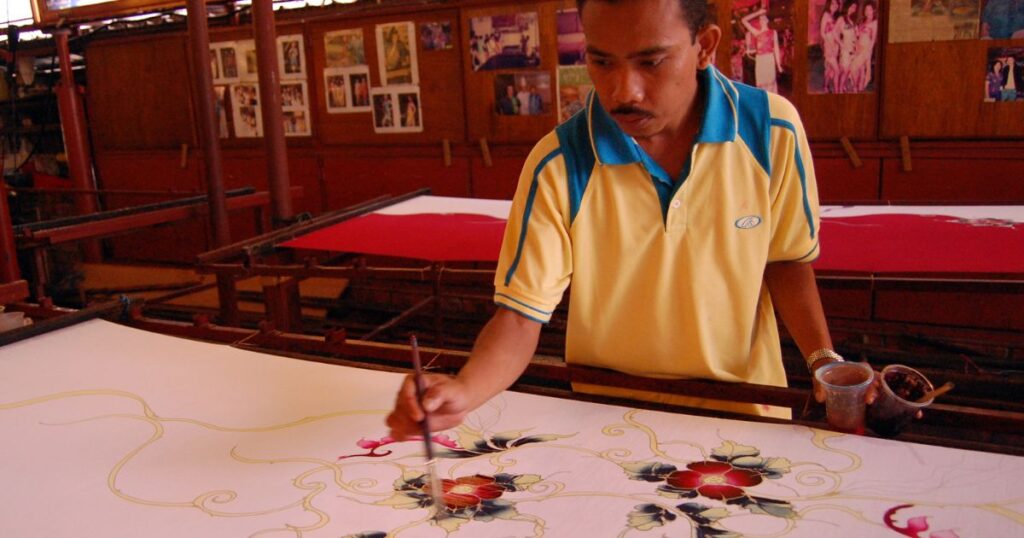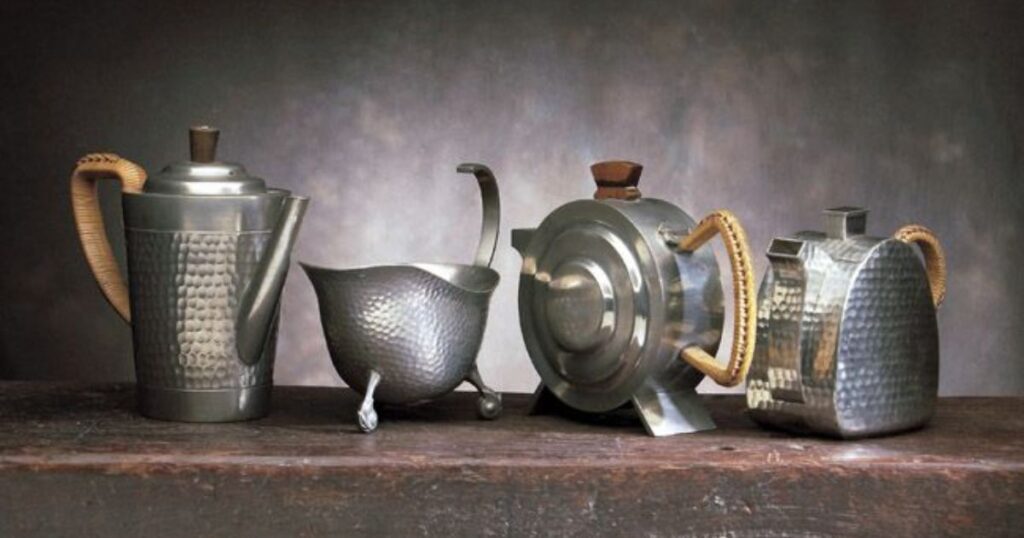Famous things to buy in Malaysia range from traditional crafts to modern goods, making this Southeast Asian country great for shopping. Malaysia’s mix of Malay, Chinese, and Indian cultures creates many different products that make perfect gifts to take home.
Whether you’re shopping in big malls in Kuala Lumpur or exploring busy night markets in Penang, Malaysia offers great shopping at prices often lower than nearby countries. This guide covers the most Famous things to buy in Malaysia, highlighting real Malaysian products that show the country’s rich culture and skilled craftspeople.
Table of Contents
Famous Things to Buy in Malaysia : Quick Guide
These spots allow visitors to escape the crowds and immerse themselves in World’s best market.
| Shopping Location | What to Carry | Famous For | Average Cost Range |
| Central Market (KL) | Cash, reusable bag | Batik, souvenirs, handicrafts | ₹ 3,000 – ₹ 20,000+ |
| Craft Complex | Credit card, camera, notebook for artisan | High-quality authentic crafts, live demonstrations | ₹ 1,500 – ₹ 15,000+ |
| Pavilion KL/Suria KLCC | Credit cards, shopping mall map | Malaysian designer brands, premium foodstuffs | ₹ 500 – ₹ 10,000+ |
| Petaling Street Market | Small denominations of cash, anti-theft bag. | Imitation goods, street food, electronics | ₹ 200 – ₹ 2,000+ |
| Royal Selangor Centre | Credit card, camera | Premium pewter products, factory tours | ₹ 1,500 – ₹ 15,000+ |
| Pasar Malam (Night Markets) | Cash only, hand sanitizer, flashlight | Street food, clothing, daily goods | ₹ 90 – ₹ 1,000 |
| Jonker Street (Melaka) | Cash, portable fan, water bottle | Antiques, Nyonya products, street food | ₹ 200 – ₹ 50,000+ |
| Langkawi Duty-Free | Passport, credit card, luggage space planning | Chocolate, alcohol, kitchen appliances | ₹ 500 – ₹ 10,000+ |
| Borneo Markets (Sabah/Sarawak) | Cash, sun protection | Indigenous crafts, tribal items, jungle produce | ₹ 500 – ₹ 10,000+ |
You can also explore our affordable Malaysia Tour Package designed for Budget Travelers.
1. Malaysian Batik

Batik stands as Malaysia’s most iconic textile art, featuring beautiful hand-drawn or block-printed designs on fabric using wax-resist dyeing techniques. Malaysian batik differs from Indonesian variations with its brighter colors and larger, more abstract patterns often featuring local flowers and butterflies.
It is iconic and only originally crafted in Malaysia as making it one of the most Famous things to buy in Malaysia
Where to buy :
- Craft Complex (Kompleks Kraf) in Kuala Lumpur
- Batik Craft Village in Penang
- Central Market (Pasar Seni) in Kuala Lumpur
- Karyaneka handicraft centers throughout Malaysia
Price range:
- INR 600-1000
- High-quality batik range from INR 2000- 4000
2. Royal Selangor Pewter

Malaysia produces some of the world’s finest pewter products, with Royal Selangor serving as the global ambassador for this Malaysian craft since 1885. These elegant pewter items combine traditional techniques with contemporary design.
Popular pewter items include:
- Wine accessories (bottle stoppers, wine glasses)
- Photo frames and decorative items
- Jewelry and personal accessories
- Corporate gifts and awards
Price range:
- Keychains start at 1000-2000 INR
- While larger serving items can range from 6000- 40,000 INR
Where to buy: Visit the Royal Selangor Visitor Centre in Kuala Lumpur
3. Songket Textiles
Songket represents Malaysian textile royalty—a luxurious hand-woven fabric intricately patterned with gold or silver threads. Traditionally worn by Malaysian royalty and for special occasions, songket makes an exquisite, high-end souvenir.
Where to buy:
- Central Market in Kuala Lumpur
- Karyaneka flagship store
- Specialty textile shops in Kuala Terengganu
- Craft markets during cultural festivals
Price range:
- 6,000-12,000 INR for smaller pieces
- 16,000-61,000 INR for full-length fabric
4. Wau (Malaysian Kites)
The wau (pronounced “wow”) is a traditional Malaysian moon-kite with intricate designs and vibrant colors. These large, decorative kites make stunning wall hangings while representing an important element of Malaysian cultural heritage, particularly from the east coast state of Kelantan.
Traditional wau varieties include:
- Wau Bulan (moon kite)—the most iconic with a crescent shape
- Wau Kucing (cat kite)
- Wau Merak (peacock kite)
- Wau Jalabudi (shield kite)
Price range:
- Cost between INR 1000-4000 depending on size
- Competition-grade may cost INR 5000-10,000.
5. Malaysian Chocolates
Malaysia has developed a thriving chocolate industry using locally grown cocoa beans. Malaysian chocolates often incorporate unique local flavors that you won’t find elsewhere.
Most popular Malaysian chocolate brands:
- Beryl’s Chocolate— Malaysia’s premier chocolate maker with unique flavors like durian and ginger
- Fidani— known for premium chocolate with Malaysian-inspired packaging
- Harriston— offers interactive chocolate experiences along with unique flavors
Price range:
- Typically range from INR 300- 1000
- Premium gift sets reaching INR 4000- 10,000
6. Kaya (Coconut Jam)
Kaya, a sweet coconut egg jam flavored with pandan, represents a breakfast staple throughout Malaysia. This creamy, aromatic spread delivers a taste of Malaysian breakfast traditions and makes a practical, affordable souvenir. Making it unique and one of the Famous Things to Buy in Malaysia.
Quality kaya should have:
- Smooth, spreadable consistency
- Rich golden-green color (from pandan leaves)
- Coconut-forward flavor with subtle eggy richness
- No artificial preservatives or colors in premium versions
Price range:
- Commercial kaya costs INR 160- 300
- Premium handmade range from INR 400-600
7. Malaysian Coffee Products
Malaysian coffee (kopi) offers unique characteristics compared to Western varieties, with a rich, full-bodied taste often prepared with condensed milk. The most famous variety, “white coffee” from Ipoh, is roasted with margarine for a distinctive caramelized flavor without the bitterness. This white coffee has ancient origin in this country and this make it one of the Famous Things to Buy in Malaysia.
Popular coffee products to bring home:
- Ipoh white coffee instant packets
- Traditional Malaysian coffee powder
- 3-in-1 Malaysian coffee mixes with creamer and sugar
- Coffee-flavored candy and sweets
Price range:
- Instant coffee sachets cost INR 300- 500
- Premium coffee beans ranges from INR 500-1000
8. Dried Fruits and Preserves
Malaysia’s tropical climate produces an abundance of exotic fruits, many of which are transformed into delicious dried snacks and preserves that travel well.
Malaysia is largest producer of dry fruits and they are world famous, it
Most popular dried fruit products:
- Dried durian (for the adventurous)—intense flavor in convenient form
- Preserved nutmeg fruits from Penang—sweet-sour treats with health benefits
- Dried mangoes, pineapples, and jackfruit
- Tamarind candy (asam) with sweet-sour flavor profiles
Price range:
- Packaged dried fruits INR 200- 600
- With premium gift sets available for INR 800- 2000
9. Tropical Spa Products
Malaysia’s abundance of tropical ingredients has fostered a thriving natural spa product industry. These items combine traditional wellness knowledge with modern product formulations.
Look for products featuring:
- Virgin coconut oil from Malaysian plantations
- Tropical flower extracts (jasmine, frangipani, lotus)
- Pandan and lemongrass essential oils
- Traditional herbs like pegaga (Asiatic pennywort)
Price range:
- Individual spa products typically cost INR 500- 1400
- luxury gift sets ranging from INR 2000- 6000.
10. Borneo Indigenous Crafts
East Malaysia (Sabah and Sarawak) on the island of Borneo offers distinctive indigenous crafts that differ from peninsular Malaysian products. These authentic tribal crafts represent the traditional cultures of groups like the Iban, Kadazan-Dusun, and Penan.
Notable Borneo craft items:
- Pua kumbu (Iban ceremonial blankets)
- Blowpipes and other tribal replicas
- Beaded jewelry and accessories
- Hand-woven rattan baskets and mats
- Wood carvings from native hardwoods
Price range:
- Beaded bracelets start around INR 300-600
- Textiles or carvings can range from INR 2000-20,000
Famous Malaysian Markets
Malaysia’s vibrant markets provide authentic shopping experiences with competitive prices and local atmosphere.
Must-visit markets include:
- Pasar Malam (night markets)—found throughout Malaysia on different nights of the week
- Jonker Street Night Market (Melaka)—weekend market in historic Chinatown
- Kota Bharu Central Market (Kelantan)—authentic batik and traditional crafts
- Siti Khadijah Market (Kelantan)—colorful central market with local products
- Sunday Market at Gaya Street (Kota Kinabalu)—variety of Borneo products and souvenirs
Also you can check out our blog about the best places to visit in October outside India so that it can help you find the best places on your next trip.
Conclusion
Famous things to buy in Malaysia offer a wonderful way to bring home memories of this culturally diverse country. From the intricate patterns of batik and songket to the distinctive flavors of kaya and white coffee, Malaysian products showcase the nation’s rich heritage and craftsmanship.
The best Malaysian souvenirs connect you to the country’s traditions while supporting local artisans and businesses. Whether you’re looking for handcrafted items that tell a cultural story or delicious foods that capture Malaysia’s unique flavors, the country offers shopping experiences to suit every interest and budget.
As you explore Famous things to buy in Malaysia Malaysia’s markets, malls, and specialty shops, take time to learn about the stories behind the products. The most valuable souvenirs aren’t just things to buy in Malaysia-they’re tangible connections to the people, traditions, and experiences that make this country special.
Ready to Shop for Malaysian Treasures?
Frenzy Holidays ensures a smooth and enriching travel experience from start to finish. You can visit us at Haware Centurion, S07/34, Nerul East, Sector 19A, Nerul, Navi Mumbai, Maharashtra 400706. For bookings or more information, call +91 7400453140, email [email protected], or visit www.frenzyholidays.com. So pack up and explore INDIA with frenzy holidays to have an unforgettable journey.
Famous Things to Buy in Malaysia – FAQs
What are the Famous Things to Buy in Malaysia?
The most popular Malaysian souvenirs include batik textiles, pewter products from Royal Selangor, kaya (coconut jam), Malaysian white coffee, and tropical fruit preserves. For authentic cultural items, consider songket fabric, traditional wau kites, or indigenous crafts from Borneo.
Where is the best place to buy Famous Things to Buy in Malaysia (batik)?
The best places to buy authentic Malaysian batik include the Craft Complex (Kompleks Kraf) in Kuala Lumpur, Batik Craft Village in Penang, and specialty shops in Kuala Terengganu. Central Market in Kuala Lumpur also offers a good selection of batik products ranging from affordable souvenirs to high-quality textiles.
What Malaysian food products can I bring back to my country?
Most packaged Malaysian food products like coffee, chocolates, cookies, and sealed spice mixes can be brought to other countries. Popular choices include Ipoh white coffee, Beryl’s chocolates, and kaya (coconut jam). Check your home country’s customs regulations before purchasing, as some countries restrict certain food imports.
How can I identify authentic Famous Things to Buy in Malaysia?
Authentic Malaysian handicrafts typically feature “Made in Malaysia” labels, show slight irregularities indicating handmade construction, and are sold at reasonable prices reflecting the craftsmanship involved. Government-sponsored craft centers like Karyaneka or the Craft Complex in Kuala Lumpur guarantee authenticity with official certification.
What is special about Royal Selangor pewter?
Royal Selangor pewter is world-renowned for its exceptional quality, unique designs blending traditional and contemporary elements, and meticulous craftsmanship. Founded in 1885, Royal Selangor has become Malaysia’s global craft ambassador. Their visitor center in Kuala Lumpur offers tours, workshops, and an extensive selection of pewter products.
Can I bargain when shopping in Malaysia?
Bargaining is expected in traditional markets, bazaars, and small independent shops in Malaysia but is not practiced in department stores, malls, or fixed-price shops. When bargaining, start at 50-60% of the asking price, remain respectful, and be prepared to meet in the middle for a fair transaction.
What are the duty-free shopping rules in Malaysia?
Malaysia offers duty-free shopping in designated zones including Langkawi Island, Labuan Island, parts of Tioman Island, and international departure areas at major airports. Foreign tourists can purchase items tax-free within allowable limits. The most significant savings are typically on alcohol, tobacco, chocolate, and perfume.
What unique gifts from Borneo (East Malaysia) can I buy?
Unique gifts from Malaysian Borneo include pua kumbu (Iban ceremonial textiles), indigenous beaded jewelry, rattan baskets, wood carvings from native hardwoods, and tribal crafts from ethnic groups like the Kadazan-Dusun, Iban, and Penan. These authentic items are best purchased in Sarawak and Sabah.
What is Malaysian kaya and why is it popular?
Malaysian kaya is a sweet coconut egg jam infused with pandan leaves, creating a fragrant spread used on toast and in pastries. It’s popular as a souvenir because it represents an authentic taste of Malaysian breakfast culture, has a unique flavor profile not found elsewhere, and is available in shelf-stable jars suitable for travel.
Where are the best night markets in Malaysia for Famous Things to Buy in Malaysia?
The best night markets (pasar malam) for shopping in Malaysia include Jonker Street Weekend Night Market in Melaka, Batu Ferringhi Night Market in Penang, Taman Connaught Night Market in Kuala Lumpur, and the Sunday Market at Gaya Street in Kota Kinabalu. Each offers a different selection of local products, street food, and souvenirs.

